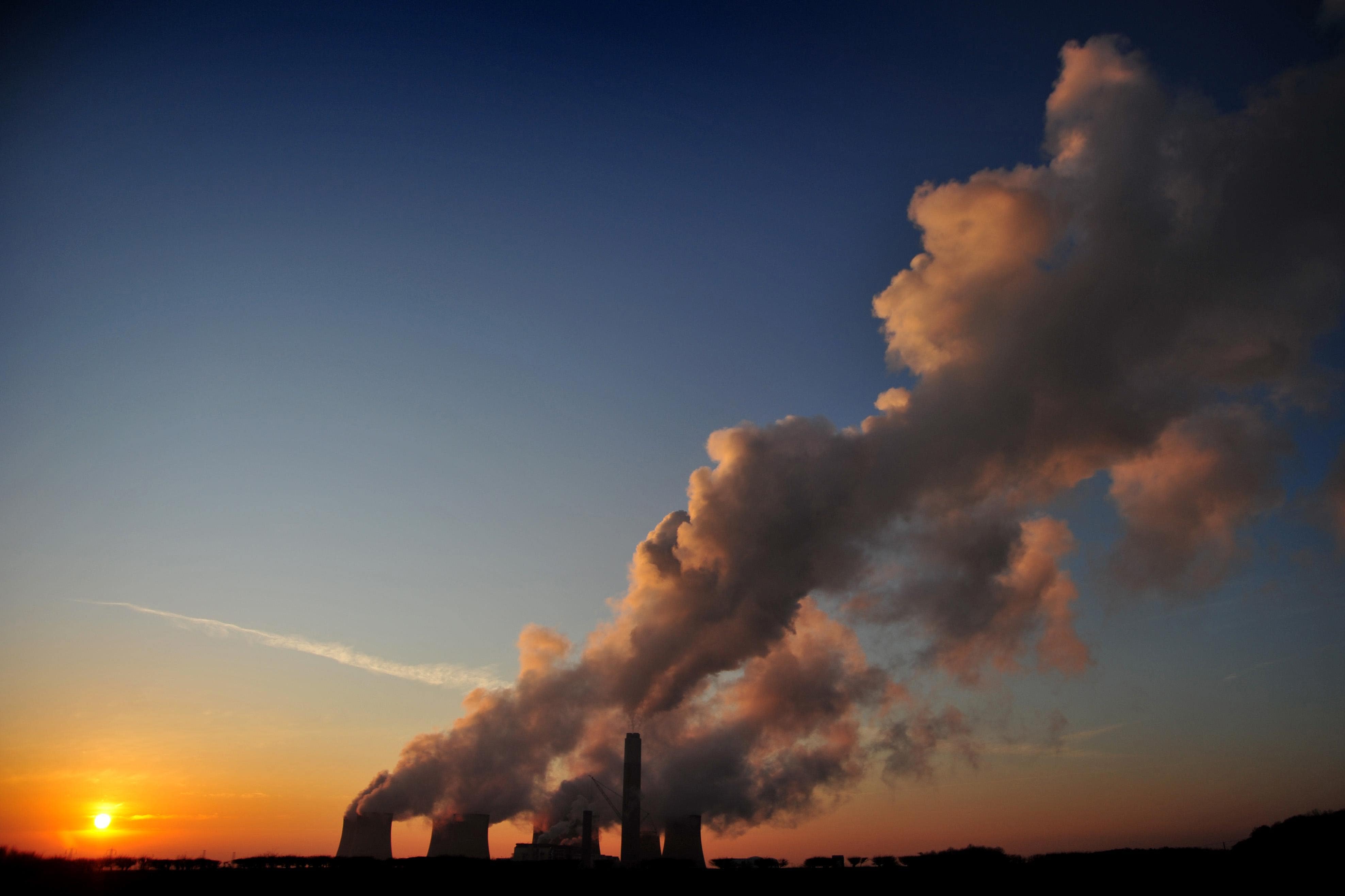Share of electricity from gas and coal hits hour-long record low of 2.4%
The new low for fossil fuels’ contribution to British grid lasted for an hour at lunchtime on April 15, Carbon Brief analysis shows.

Your support helps us to tell the story
From reproductive rights to climate change to Big Tech, The Independent is on the ground when the story is developing. Whether it's investigating the financials of Elon Musk's pro-Trump PAC or producing our latest documentary, 'The A Word', which shines a light on the American women fighting for reproductive rights, we know how important it is to parse out the facts from the messaging.
At such a critical moment in US history, we need reporters on the ground. Your donation allows us to keep sending journalists to speak to both sides of the story.
The Independent is trusted by Americans across the entire political spectrum. And unlike many other quality news outlets, we choose not to lock Americans out of our reporting and analysis with paywalls. We believe quality journalism should be available to everyone, paid for by those who can afford it.
Your support makes all the difference.The share of British electricity generated by burning coal and gas fell to a record low of just 2.4% earlier this month, analysis shows.
The share of power coming from fossil fuels hit the new low at lunchtime on Monday April 15 and lasted for an hour, climate and energy website Carbon Brief said.
Analysis of National Grid Electricity System Operator (ESO) data by Carbon Brief also shows there were 75 half-hour periods in 2024 so far when fossil fuels accounted for less than 5% of power demand.
In 2023, there were only 16 half-hour periods where coal and gas met less than 5% of demand, and just five in 2022, the analysis said.
As recently as 2018, fossil fuels never met less than 10% of demand in a half hour period for electricity in Britain.
The analysis shows fossil fuels’ share of electricity averaged over a day also fell to a record low, of 6.4%, earlier in the month, on April 5.
The figures show the progress towards the ESO’s goal to operate with 100% zero carbon power – renewables and nuclear – for short periods from 2025, which requires sufficient low carbon power and overcoming technical challenges for the grid.
The ESO’s director of system operations Craig Dyke said getting to the 2025 target was a “significant engineering challenge”, but the operator was confident it would be able to hit the “world-leading” goal.
Great Britain has made excellent progress in decarbonising its electricity system
It is part of the huge switch going on in the power system, as coal plants close and gas’s share of electricity generation is reduced in the face of increasing deployment of renewables including offshore and onshore wind and solar, to cut the carbon emissions driving climate change.
Britain’s last remaining coal power station, Ratcliff- on-Soar, near Nottingham, is due to close at the end of September.
In just 15 years, the overall share of coal and gas has fallen dramatically from producing 74% of British electricity in 2009 to only a third in 2023.
Over the same period, the contribution of renewables to the grid has risen from 2% to 40%.
But the Carbon Brief analysis also highlights that so far this year, the maximum share of power coming from fossil fuels for any given half-hour period is 66%, as the grid still relies on gas when the wind is not blowing and the sun not shining.
That will mean low carbon alternatives ranging from batteries to gas plants fitted with technology to capture and store emissions to meet the Government’s targets to fully decarbonise the grid by 2035 or Labour’s even more ambitious 2030 goal.
Mr Dyke said: “Great Britain has made excellent progress in decarbonising its electricity system.
“The ESO has committed to operating a zero-carbon electricity system for short periods of time in 2025.
“We have already seen periods on the electricity system where the market has delivered a safe mix of 90%-plus zero carbon power.
“This is a culmination of a significant amount of effort over a number of years.
It’s not just about technologies, it’s about hearts and minds and processes and systems and people working together across the industry, the energy regulator and Government.”
And he said: “Getting to the 2025 ambition has been a significant engineering challenge, which we are solving.
“We’re confident that we will have the right capabilities on the system to be able to do that which will be absolutely ground-breaking and world-leading.”